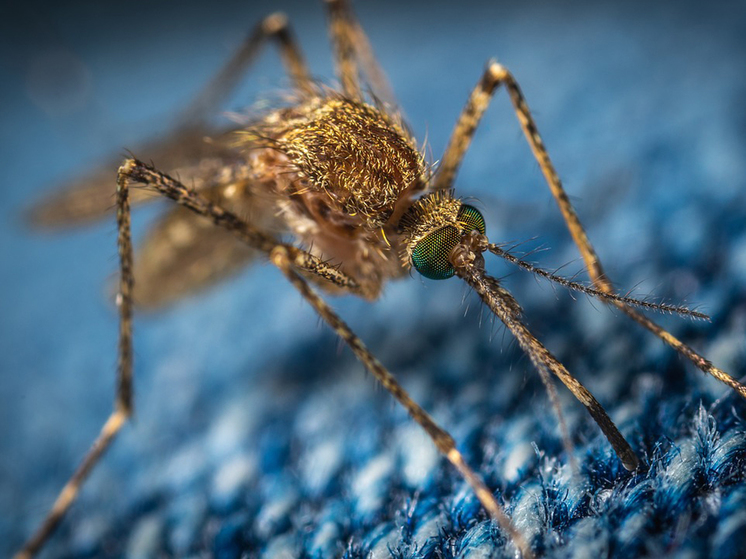The study showed which smells repel mosquitoes the most
[ad_1]

According to analytical resources, sales of drugs that protect against bloodsucking bites increased by 73% by mid-May. Muscovites and residents of the Moscow region complain about the abundance of mosquitoes, as, indeed, every time in late spring and early summer. In the meantime, mosquito repellents have risen in price by an average of 9%, which makes it especially interesting for Russians to study scientists from Zambia on the topic of what smells repel winged creatures.
Mosquitoes are not just annoying creatures that can ruin any summer party, but also carriers of a number of dangerous diseases – malaria, the Zika virus, fever, and some dangerous parasites.
According to experts, due to climate change, species of mosquitoes that did not exist before began to appear in our middle lane. Although carriers of dangerous infections have not yet been noticed in the Moscow region, if it continues to get warmer, everything is possible. And yet, mosquito bites are unpleasant, and when combed, they can become infected.
The search for odors that can turn bloodsuckers away from humans continues. Recently in Zambia they created a whole “arena of aromas” from mosquitoes. Scientists have studied (and continue to study) how to perfume yourself so that a mosquito does not undermine your nose. However, so far, experiments show that there is nothing more attractive than the smell of the human body for mosquitoes.
To understand the role olfactory cues from the human body play in shaping mosquito behavior, scientists in Zambia conducted a large-scale, multiple-choice analysis of mosquito preferences. As a result, scientists have created a whole range for mosquito testing.
“Into a structure the size of a skating rink (more than 1,000 square meters) that is completely protected from outside penetration, they pump air with various test molecules, and then find out how mosquitoes like them,” says well-known therapist Alexei Vodovozov. – In addition, thermotaxis, that is, infrared navigation of mosquitoes, was also evaluated.
Some of the smells inside the arena were delivered from people who lived in special tents located nearby. The conclusions are still sad: mosquitoes prefer natural body odor to any traps, including carbon dioxide. Sage and eucalyptus have shown themselves well as natural repellents. And a couple of the most attractive carboxylic acids are identical to those from Limburger cheese. The experiments are ongoing.”
However, the human body, as the Zambian experiments showed, can be attractive in different ways. Experts have found that mosquitoes respond to an individual skin microbiome, to carbon dioxide (CO2) emissions during human sleep.
High attractiveness is associated with the body odor profiles of people with an increased relative content of volatile carboxylic acids – butyric, isobutric and isovaleric. The least attractive were those whose skin smells like eucalyptol monoterpenoid. Eucalyptol is a molecule known to repel mosquitoes and is often found in the skin and respiratory secretions of humans.
The scientists also determined that mosquitoes prefer to land on visual targets heated to human skin temperature at night.
There are a lot of mosquito repellents on the market today. However, be careful when choosing them. Some sprays are toxic and are contraindicated in children. A number of aerosols are not recommended to be applied to the skin – only to clothing. Sprays and aerosols work from 2 to 12 hours.
For children, it is better to choose special children’s hypoallergenic creams. In addition, not so long ago, children’s mosquito bracelets appeared on sale, which are allowed to be used from the first days of life. These bracelets are designed for a couple of weeks of use.
“Mosquito” tablets often have a strong odor that can cause headaches. So it is better to opt for odorless plates.
Traditional medicine also offers many ways to deal with bloodsuckers. Even in ancient times, our ancestors realized that mosquitoes are afraid of the smell of geranium, vanilla, anise, basil, eucalyptus. Use these plants and spices, as well as aromatic oils from them, to combat bloodsucking.
For example, a bag of vanillin (without sugar!) Can be diluted in a glass of water and smeared with this solution on open areas of the body. Clove buds can be poured with boiling water or alcohol and let it brew for a couple of hours – the resulting solution will protect no worse than aerosols sold in stores. Plus, it’s completely harmless.
Apply aromatic oils to the temples, behind the ears, on the wrists and shoulders, as well as on unprotected places. In addition, aroma lamps can be filled with such oils. During a picnic, it is advised to throw nettles, pine branches or cones, wormwood into the fire: the blood-sucking ones cannot stand their smell.
And the folk recipe says: if you eat a clove of garlic, not a single mosquito will fly up to you.
[ad_2]
Source link








